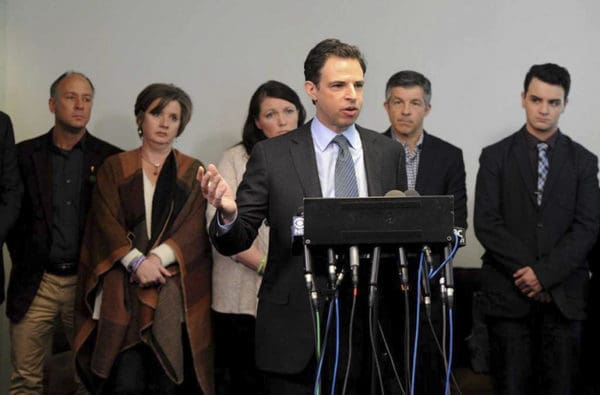Anti-gun forces have long tried and failed to attack gun makers the way class action attorneys went after the tobacco companies. By suing them into submission, forcing them to change or end most of their marketing efforts and wringing billions of dollars out of them to compensate states for the damage done by their products (and line their own pockets). But in 2005, seeing the existential threat posed to the firearms industry by potentially defending hundreds of lawsuits over selling lawful products to consumers who wanted them, the firearms industry scored one of its greatest legislative wins; the Protection of Lawful Commerce in Arms Act.
The PLCAA holds gun makers harmless for crimes committed using their products. Just as no one considers the maker of the car used by Abdul Razak Ali Artan responsible for the deaths he caused when he drove into a crowd at Ohio State University, why should Daniel Defense be liable because Stephen Paddock used one of their rifles — which he purchased legally — to commit mass murder?
But that’s exactly what many in the anti-gun community want to see, including a group of parents of children who were murdered by Adam Lanza at Sandy Hook Elementary School.
(They) have filed a unique lawsuit against the gun manufacturers of the AR-15, the powerful semi-automatic assault rifle that allowed Lanza to carry out his rampage so quickly and with such lethal capability. They claim the manufacturers, Remington Arms and Bushmaster Firearms, bear responsibility for the massacre.
The law however, is clear. And thanks to the protections afforded by the PLCAA, other suits filed against gun makers — as in the aftermath of the Aurora theater shooting — haven’t gone well for the plaintiffs.
So far, the Sandy Hook families suit hasn’t fared much better.
The lawsuit — which is filed on behalf of the families of 10 victims — has wound its way to Connecticut’s highest court after a lower court judge dismissed the case and the plaintiffs appealed.
The lower court judge, Barbara Bellis, said in her decision that the case “falls squarely within the broad immunity” given to gun manufacturers under the federal law.
Still, the Connecticuty supreme court agreed to hear their appeal. So what makes them think they still have any chance of prevailing?
…the law allows for a sliver of wiggle room if the plaintiffs can prove “negligent entrustment.” In this case, the legal term means proving the manufacturers were reckless in that they knew they were selling deadly weapons and looking for violent young men as customers.
The plaintiffs’ lawyer, Joshua Koskoff, believes they can prove this.
Of course he does. At least, he’s convinced the group of parents he’s representing that he can.
The lawyer scoffed at the manufacturers’ classification of the weapon as a sporting rifle when it was meant for trained military personnel, not civilians.
“This has military roots going back to Vietnam,” Koskoff said of the gun. “They were trying to design the perfect killing machine for the world’s greatest military. It checked all the boxes.”
Save it for your arguments before the court, counselor. Not that you’re likely to be given that chance. One more reason for that is . . .
Remington has argued in filings that the rifle was lawfully purchased by Lanza’s mother, Nancy, whom the deranged man also killed. It says that Lanza bore sole responsibility for his criminal acts.
That’s right. However Bushmaster may have advertised their guns at the time, the rifle used by Adam Lanza to murder those children wasn’t even sold to him. His mother bought it. Legally. After passing all of the requisite background checks. So the company’s alleged marketing toward violent young men would seem to be a moot point.
Last month, Koskoff and lawyers for Remington and Bushmaster argued their cases before a panel of seven justices. The panel will decide in the coming months if the case can move forward to trial.
More than a dozen interested parties on both sides of the gun issue have filed amicus briefs in the case — and for good reason.
And here’s the real goal:
If the panel allows the case to go to trial, it would be a game-changer. A trial would open manufacturers up to the discovery process, forcing them to turn over documents on their focus groups, marketing schemes and emails.
Plaintiffs want the right to rifle through the internal documents and communications of companies like Remington, Ruger, Smith & Wesson, GLOCK and all the rest. Who knows what embarrassing communications and impolitic email strings regarding strategy they might dig up if given access. It would be a class action attorney’s dream come true.
But that’s still a long shot at best. More likely, this suit will end up just like the Phillips family’s poss-Aurora action against gun makers and online sellers of ammunition and gear — with the plaintiffs being ordered to pay Remington’s no doubt astronomical legal fees and court costs for bringing a frivolous suit they attorney should have known had no hope of succeeding.
And just like the Brady Campaign, when that bill comes due, Joshua Koskoff, Esquire, will be nowhere to be found.
